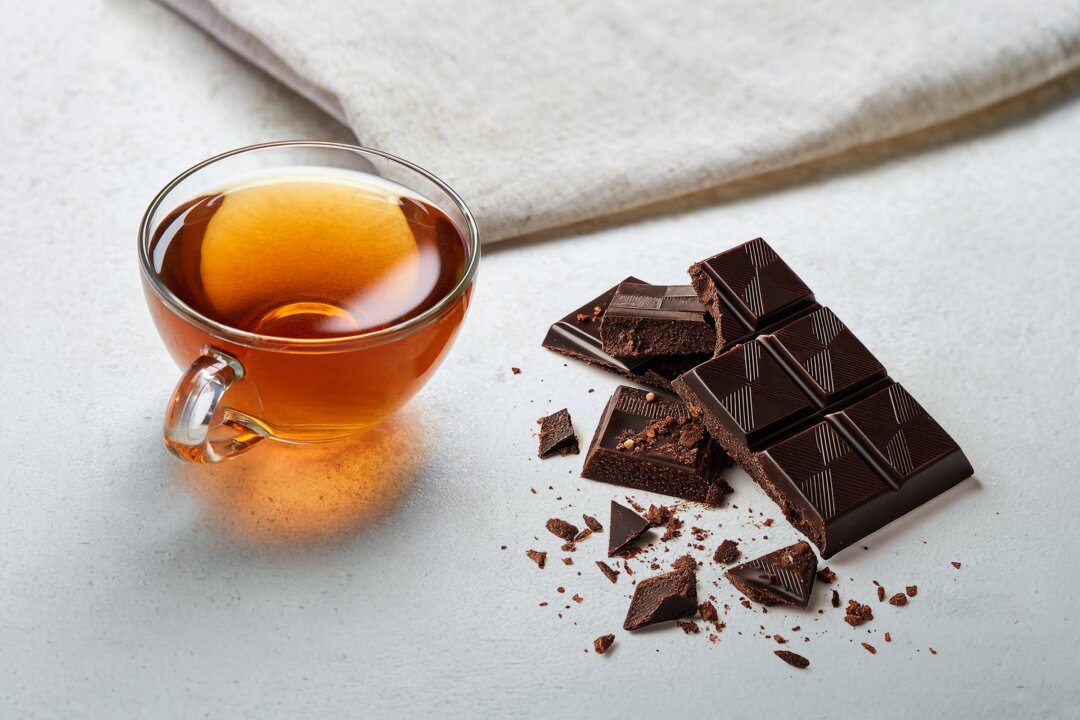Health
Flavanol-rich Foods Could Mitigate Risks of Prolonged Sitting

Recent research from the University of Birmingham indicates that consuming foods high in flavanols, such as tea, cocoa, and certain fruits, may help protect blood vessels from damage associated with prolonged sitting. This study, published in The Journal of Physiology, highlights a potential dietary intervention for mitigating the health risks linked to sedentary behavior.
Sitting for extended periods has been shown to elevate the risk of cardiovascular disease. For many young adults, the average daily sitting time can reach around six hours, whether at work, in vehicles, or during leisure activities. Researchers have long understood that such inactivity can adversely affect blood vessel health, leading to increased risks for heart disease.
The recent findings suggest that flavanols, natural compounds found in various foods, might counteract some of the negative effects of sitting. These compounds are abundant in foods like tea, berries, apples, and cocoa. The study indicates that incorporating these foods into one’s diet could offer a simple way to protect cardiovascular health without necessarily increasing physical activity.
Understanding the Impact of Sedentary Behavior
The detrimental effects of excessive sitting are well-established. A growing body of evidence associates prolonged periods of inactivity with serious health conditions, including obesity, type 2 diabetes, and cardiovascular disease. The World Health Organization has emphasized the importance of reducing sedentary time as part of a healthy lifestyle.
Researchers at the University of Birmingham conducted this study to explore the protective effects of flavanols against the cardiovascular risks associated with sitting. Their work involved analyzing the impact of flavanol-rich foods on endothelial function — the health of the blood vessel lining.
Their findings revealed that participants who consumed flavanol-rich foods showed improved vascular function, even after prolonged periods of sitting. This suggests that these foods could have a protective effect, counteracting the negative consequences of a sedentary lifestyle.
Practical Applications and Future Research
While the study offers promising insights, it also raises questions about practical applications. Incorporating flavanol-rich foods into daily diets could be a straightforward strategy to enhance vascular health. Simple changes, such as opting for a cup of tea instead of sugary beverages or adding cocoa to smoothies, could yield significant benefits.
Further research is necessary to establish the precise mechanisms through which flavanols exert their protective effects. Understanding the optimal amounts and forms of these foods will be crucial for developing dietary recommendations.
As society becomes increasingly aware of the dangers of a sedentary lifestyle, findings like these provide a glimmer of hope. They suggest that health can be improved not just through exercise but also through mindful dietary choices. By prioritizing foods rich in flavanols, individuals may be able to reduce their cardiovascular risks, leading to a healthier and more active life.
-

 Top Stories1 month ago
Top Stories1 month agoNew ‘Star Trek: Voyager’ Game Demo Released, Players Test Limits
-

 World1 month ago
World1 month agoGlobal Air Forces Ranked by Annual Defense Budgets in 2025
-

 World1 month ago
World1 month agoMass Production of F-35 Fighter Jet Drives Down Costs
-

 World1 month ago
World1 month agoElectrification Challenges Demand Advanced Multiphysics Modeling
-

 Science1 month ago
Science1 month agoTime Crystals Revolutionize Quantum Computing Potential
-

 Business1 month ago
Business1 month agoGold Investment Surge: Top Mutual Funds and ETF Alternatives
-

 Entertainment1 month ago
Entertainment1 month agoFreeport Art Gallery Transforms Waste into Creative Masterpieces
-

 Top Stories1 month ago
Top Stories1 month agoDirecTV to Launch AI-Driven Ads with User Likenesses in 2026
-

 Lifestyle1 month ago
Lifestyle1 month agoDiscover Reese Witherspoon’s Chic Dining Room Style for Under $25
-

 Health1 month ago
Health1 month agoGavin Newsom Critiques Trump’s Health and National Guard Plans
-

 Lifestyle1 month ago
Lifestyle1 month agoLia Thomas Honored with ‘Voice of Inspiration’ Award at Dodgers Event
-

 Business1 month ago
Business1 month agoUS Government Denies Coal Lease Bid, Impacting Industry Revival Efforts









